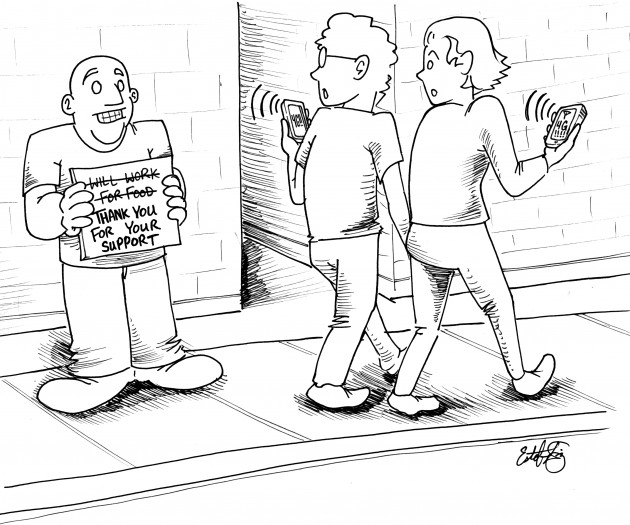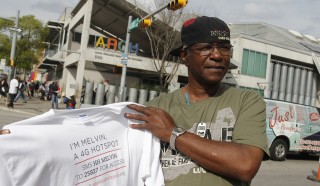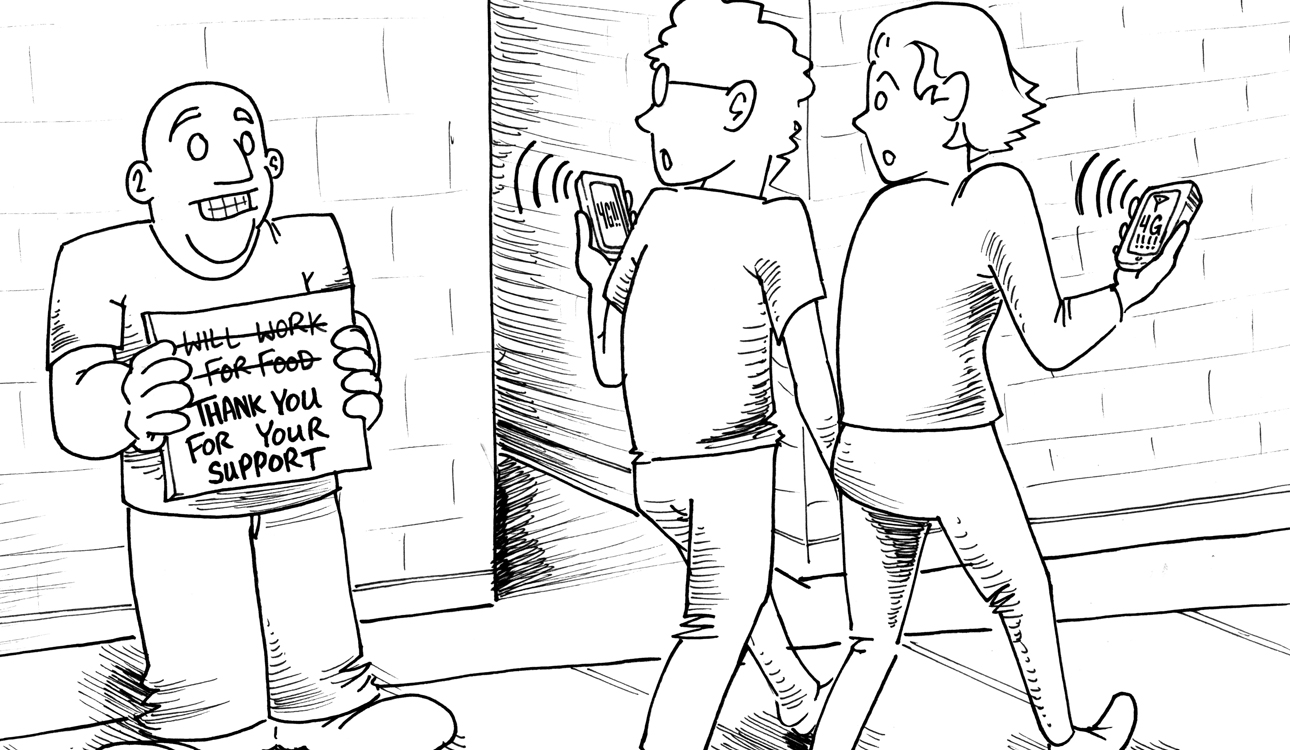

Associated Press
South By Southwest saw many innovative ideas, but perhaps the most controversial contribution to the festival came from Bartle, Bogle and Hegarty advertisement agency.
In expectation of the overwhelming number of people in Austin for SXSW, the New York based agency dreamed up a solution for the demand for Internet access with the hopes of helping the less fortunate.
Donning shirts stating “I’m (name), a 4G Hotspot,” homeless people were given the opportunity to earn $20 a day, plus all donations, to carry wireless 4G transmitters.
Patrons were asked to donate $2 in cash or via PayPal for 15 minutes of service. The agency set up 13 homeless people from the Front Steps homeless shelter in Austin to work during the festival.
While it seems Bartle, Bogle and Hegarty was trying to do the right thing by giving job opportunities to the homeless, many have criticized their efforts saying the agency dehumanized the homeless making them into a service.
“The homeless [are] turned not just into walking, talking hotspots, but walking, talking billboards for a program that doesn’t care anything at all about them or their future,” said Tim Carmody of Wired.
In contrast, homeless participant Melvin said the program allowed him to talk to people and possibly create awareness for homelessness. He also said he believed the program was meant to help the homeless.
Although this was the program’s first time, it is rumored that the agency will continue the program in New York.
Bartle, Bogle and Hegarty’s idea may have angered many, but it is reasonable to assume the agency was genuinely trying to help those in need. It may have been negatively received, but their intentions seem good.
Rather than hire teenagers or festival goers – who obviously have money since they could afford the tickets – Bartle, Bogle and Hegarty opted to give the homeless a chance to make money, while they made no profit of their own.
The shirts seem to be the main source of discontent with critics, as they introduced the homeless as a 4G hotspot. Had they set up hotspot booths instead and had the homeless work in them, there probably would not have been as much negative feedback.
The T-shirts, critics say, essentially took the identity of the homeless away and turned them into a dehumanized service. Placing names on the shirts barely helped the problem and for their worth, could have been left off.
While Bartle, Bogle and Hegarty’s program seeks to help the homeless, it needs to be reformed before it is implemented in other cities.
With adjustments to the humanization issues, this program seems like a suitable and clever way to offer the homeless job opportunities, as well as provide a service to the public. They may, however, think about raising the salary amount if they require participants to work all day – $20 a day seems like far too little to pay someone for a day’s work.






